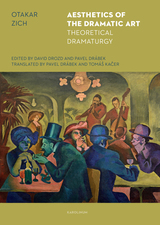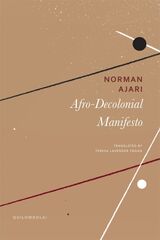39 start with R start with R
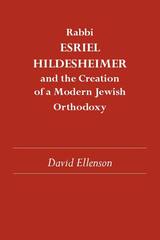
The story of modern Orthodox Judaism is usually told only from the perspective of Rabbi Samson Raphael Hirsch. Ellenson’s work, a thorough examination of the life and work of one of Hirsch’s contemporaries, Rabbi Esriel Hildesheimer, reveals another important contributor to the creation of a modern Jewish Orthodoxy during the late 1800s. like Hirsch, Hildesheirmer felt the need to continue certain traditions while at the same time introducing certain innovations to meet the demands of a modern society. This original study of an Orthodox rabbinic leader shows how Hildesheirmer’s flexible and pragmatic approach to these problems continues to be relevant to modern Judaism. The way in which this book draws upon response literature for its comprehension of Hildesheimer makes it a distinctive work in modern Jewish historiography and sociology.
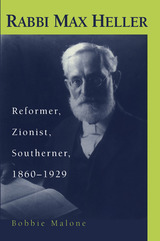
Max Heller was a man of both passionate conviction and inner contradiction. He sought to be at the center of current affairs, not as a spokesperson of centrist opinion, but as an agitator or mediator, constantly struggling to find an acceptable path as he confronted the major issues of the day--racism and Jewish emancipation in eastern Europe, nationalism and nativism, immigration and assimilation. Heller's life experience provides a distinct vantage point from which to view the complexity of race relations in New Orleans and the South and the confluence of cultures that molded his development as a leader. A Bohemian immigrant and one of the first U.S.-trained rabbis, Max Heller served for 40 years as spiritual leader of a Reform Jewish congregation in New Orleans--at that time the largest city in the South. Far more than a congregational rabbi, Heller assumed an activist role in local affairs, Reform Judaism, and the Zionist movement, maintaining positions often unpopular with his neighbors, congregants, and colleagues. His deep concern for social justice led him to question two basic assumptions that characterized his larger social milieu--segregation and Jewish assimilation.
Heller, a consummate Progressive with clear vision and ideas substantially ahead of their time, led his congregation, his community, Reform Jewish colleagues, and Zionist sympathizers in a difficult era.
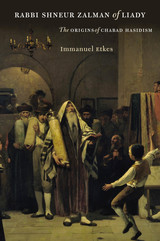

The Radiant explores the psychological, physical, and spiritual challenges of living in a body and the changes and distortions that arise from the experience of the body’s limitations and inevitable death. The collection takes its title from the term for the point from which all meteors appear to emanate during a shower, luminous bodies in decay that when traced to their origin seem to converge at a single point. “Perhaps you can remember the time called before, the all-you-can-do-is-see-yourself-in-a-split-second where you recognize that everything you’ve ever known is going to be different after,” writes Goett in the collection’s final poem, “The Bookman,” recounting radiant points of no return and transformation that, in spite of their challenge, remain luminous.
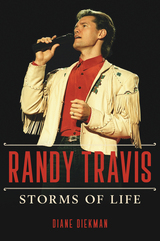
Randy Travis’s 1986 breakthrough put him at the forefront of Nashville’s new traditionalist sound and, in the words of Garth Brooks, saved country music. The singer’s warm baritone and all-time classic songs like “Forever and Ever, Amen” landed him atop the charts sixteen times. His cross-genre appeal brought a level of multiplatinum success that no country artist before him had ever achieved.
Diane Diekman’s biography follows the life and career of one of country music’s most beloved figures. Steered from a troubled path as a teen, Travis served a long apprenticeship under manager and future wife Lib Hatcher before being rejected by the Nashville music industry as “too country.” The single “On the Other Hand” and his smash debut album did away with the doubters and began a dominant four-year run that stretched into ongoing success as a recording artist, trailblazing live performer, and actor in film and television. Diekman uses dozens of interviews and in-depth research to fill in the details of Travis’s pre-fame life and his enormous impact on country, popular, and gospel music. From there, she pivots to telling the story of the singer’s difficult divorce from Hatcher, subsequent problems with alcohol and run-ins with the law, and the challenges he overcame in the aftermath of a devastating 2013 stroke.
Informed by a wealth of new research and interviews, Randy Travis is the first in-depth biography of the country music legend.
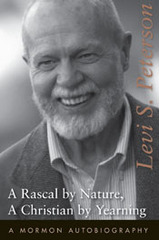
Peterson has won a wide readership for his novels and short stories, his prize-winning biography of historian Juanita Brooks, and the essays that have appeared with regularity in western and Mormon literary and historical journals. In his autobiography, Peterson describes growing up on the Mormon frontier of rural Arizona, his growing skepticism with his Mormon faith, his teaching career at Weber State University, and his struggle to understand and master personal crises of confidence that kept him in therapy for almost two decades. Of particular interest to readers familiar with Peterson’s fiction are the many pages devoted to the creative process.
Winner of the Mormon History Association Turner-Bergera Best Biography Award.
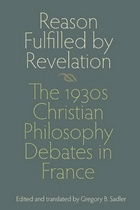
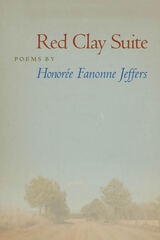
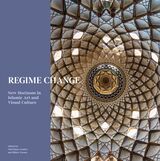
The essays collected in this volume highlight some of the regimes of thought and changing trends that structure the field of Islamic art history. The authors present new research exploring the intentions of patrons, the agency of craftsmen, and their responses to previous artistic production, thereby allowing artifacts and monuments to be set within their historical, social, and artistic contexts.
In their contributions, Annabel Teh Gallop, Dmitry Bondarev, and Umberto Bongianino discuss significant changes to Qur’an production due to dynastic and political regime changes in Sumatra and the Malay Peninsula, as well as in Borno and Morocco in Africa. Corinne Mühlemann looks at changes in the role and status of designers and weavers making silk in Khurasan in the post-Mongol period. Lisa Golombek, Michael Chagnon, and Farshid Emami explore Safavid art and architecture, focusing on the material and sensorial qualities of a group of tiled arch panels tiles with narrative scenes, a delicately painted vase, and the clocks of the main square of seventeenth-century Isfahan. Regime change also comes about through technological shifts, and Ulrich Marzolph and Yasemin Gencer ask how the rise of photography and new printing techniques shaped the production, exchange, and transmission of images in Iran and Turkey.

This unusual biographical work traces the life and career of Ademar of Chabannes, a monk, historian, liturgist, and hagiographer who lived at the turn of the first Christian millennium. Thanks to the unique collection of over one thousand folios of autograph manuscript that Ademar left behind, Richard Landes has been able to reconstruct in great detail the development of Ademar's career and the events of his day, and to suggest several major revisions in the general picture held by current medieval historiography.
Above all, the author's research confirms and elaborates the realization (first articulated over sixty years ago by the historian Louis Saltet) that in 1029 Ademar suffered a humiliating defeat at the height of his career and spent his final five years feverishly producing a dossier of forgeries and fictions about his own contemporaries that has few parallels in the annals on medieval forgery. Not only did that dossier of forgeries succeed in misleading historians from the twelfth century right up to the twentieth, but few historians have been willing to explore the implications of so striking a revision in Ademar's biography. Richard Landes is the first to systematically examine the evidence and the implications for our understanding of the period, and he offers an explanation of how these remarkable developments might have occurred.
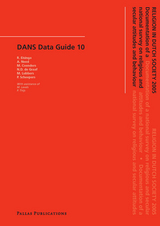
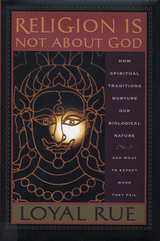
Thousands of religious traditions have appeared over the course of human history but only a relative few have survived. Some speak of a myriad of gods, others of only one, and some recognize no gods at all. Volumes have been written attempting to prove the existence or nonexistence of supernatural being(s). So, if religion is not about God, then what is it about?
In this provocative book, Loyal Rue contends that religion, very basically, is about us. Successful religions are narrative (myth) traditions that influence human nature so that we might think, feel, and act in ways that are good for us, both individually and collectively. Through the use of images, symbols, and rituals, religion promotes reproductive fitness and survival through the facilitation of harmonious social relations. Drawing on examples from the major traditions—Judaism, Christianity, Islam, Hinduism, and Buddhism—Rue shows how each religion, in its own way, has guided human behavior to advance the twin goals of personal fulfillment and social coherence.
As all faiths are increasingly faced with a crisis of intellectual plausibility and moral relevance, this book presents a compelling and positive view of the centrality and meaning of religion.

2006 Choice Outstanding Academic Title
Thousands of religious traditions have appeared over the course of human history but only a relative few have survived. Some speak of a myriad of gods, others of only one, and some recognize no gods at all. Volumes have been written attempting to prove the existence or nonexistence of supernatural being(s). So, if religion is not about God, then what is it about?
In this provocative book, Loyal Rue contends that religion, very basically, is about us. Successful religions are narrative (myth) traditions that influence human nature so that we might think, feel, and act in ways that are good for us, both individually and collectively. Through the use of images, symbols, and rituals, religion promotes reproductive fitness and survival through the facilitation of harmonious social relations. Drawing on examples from the major traditions—Judaism, Christianity, Islam, Hinduism, and Buddhism—Rue shows how each religion, in its own way, has guided human behavior to advance the twin goals of personal fulfillment and social coherence.
As all faiths are increasingly faced with a crisis of intellectual plausibility and moral relevance, this book presents a compelling and positive view of the centrality and meaning of religion.
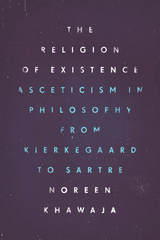
At the heart of existentialism, Noreen Khawaja argues, is a story about secular thought experimenting with the traditions of European Christianity. This book explores how a distinctly Protestant asceticism formed the basis for the chief existentialist ideal, personal authenticity, which is reflected in approaches ranging from Kierkegaard’s religious theory of the self to Heidegger’s phenomenology of everyday life to Sartre’s global mission of atheistic humanism. Through these three philosophers, she argues, we observe how ascetic norms have shaped one of the twentieth century’s most powerful ways of thinking about identity and difference—the idea that the “true” self is not simply given but something that each of us is responsible for producing.
Engaging with many central figures in modern European thought, this book will appeal to philosophers and historians of European philosophy, scholars of modern Christianity, and those working on problems at the intersection of religion and modernity.
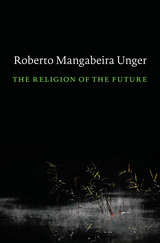
How can we live in such a way that we die only once? How can we organize a society that gives us a better chance to be fully alive? How can we reinvent religion so that it liberates us instead of consoling us?
These questions stand at the center of Roberto Mangabeira Unger’s The Religion of the Future. Both a book about religion and a religious work in its own right, it proposes the content of a religion that can survive faith in a transcendent God and in life after death. According to this religion—the religion of the future—human beings can be more human by becoming more godlike, not just later, in another life or another time, but right now, on Earth and in their own lives.
Unger begins by facing the irreparable flaws in the human condition: our mortality, groundlessness, and insatiability. He goes on to discuss the conflicting approaches to existence that have dominated the last 2,500 years of the history of religion. Turning next to the religious revolution that we now require, he explores the political ideal of this revolution, an idea of deep freedom. And he develops its moral vision, focused on a refusal to squander life.
The Religion of the Future advances Unger’s philosophical program: a philosophy for which history is open, the new can happen, and belittlement need not be our fate.

This comprehensive introduction to theories of religion is the first single-volume exploration of ideas put forward by both believers and non-believers.
James Thrower analyzes the different types of explanations of religion, not just the thoughts of individuals, advanced primarily—but not exclusively—from within the Western tradition. He begins by looking at religious explanations of religion, which define religion as revelation, experience or philosophy (Plato, Kant, and Hegel). He then examines the naturalist, or nonreligious, explanations, from the disciplines of anthropology, psychology, and sociology, including the "masters of suspicion" (including Feurbach, Nietzsche, Marx, Tylor, Frazer, and Freud). The scope of this book ranges from the classical, Semitic, and Indian religious traditions through contemporary thinkers.
Thrower concludes by considering the future of the religions of the world in light of the increasingly close inter-religious encounters that are becoming a feature of the global village of the twenty-first century.
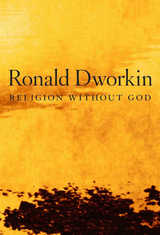
In his last book, Ronald Dworkin addresses questions that men and women have asked through the ages: What is religion and what is God’s place in it? What is death and what is immortality? Based on the 2011 Einstein Lectures, Religion without God is inspired by remarks Einstein made that if religion consists of awe toward mysteries which “manifest themselves in the highest wisdom and the most radiant beauty, and which our dull faculties can comprehend only in the most primitive forms,” then, he, Einstein, was a religious person.
Dworkin joins Einstein’s sense of cosmic mystery and beauty to the claim that value is objective, independent of mind, and immanent in the world. He rejects the metaphysics of naturalism—that nothing is real except what can be studied by the natural sciences. Belief in God is one manifestation of this deeper worldview, but not the only one. The conviction that God underwrites value presupposes a prior commitment to the independent reality of that value—a commitment that is available to nonbelievers as well. So theists share a commitment with some atheists that is more fundamental than what divides them. Freedom of religion should flow not from a respect for belief in God but from the right to ethical independence.
Dworkin hoped that this short book would contribute to rational conversation and the softening of religious fear and hatred. Religion without God is the work of a humanist who recognized both the possibilities and limitations of humanity.
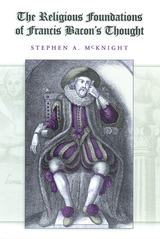
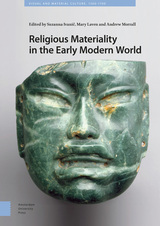

As Harry Austryn Wolfson deftly isolates and analyzes some of the most vital and often the most enigmatic ideas developed by the religious philosophers of the West, a cumulative and thoughtful continuity emerges from his interpretations. Philo, for example, appears as a dominant force throughout the sixteen centuries that preceded Spinoza's critique of his basic principles.
The ten essays which constitute the critical sequence of this penetrating book are derived from lectures, and from separate publications many of which are not readily available now. They include discussions of Immortality and Resurrection in the Philosophy of the Church Fathers; St. Augustine and the Pelagian Controversy; Causality and Freedom in Descartes, Leibniz and Hume. Wolfson concludes with a perceptive distillation of his personal wisdom in an essay contrasting the professed atheist with the “verbal theist.”
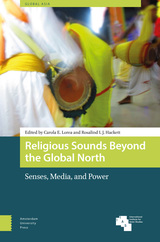
This edited volume implements a “sonic turn” in the study of religion by engaging with a diversity of auditory, musical, and embodied practices. Dislodging the Global North as the main point of reference for studies on religious sound, this volume proposes an acoustemology of the post-secular with an emphasis on Asia as method. Unsettling and expanding existing discussions on senses, media, and power, editors Carola E. Lorea and Rosalind I. J. Hackett present religious sounds as co-creating subjectivities and collectivities that coalesce around audible aesthetic formations. This volume demonstrates that religious sounds are not only produced by certain religious traditions but also produce communities, shaping the self and sensitivity of those who participate.
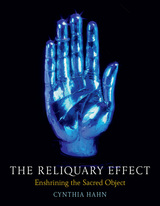
Hahn looks deeply into the Christian tradition, examining relics and reliquaries throughout history and around the world, going from the earliest years of the cult of saints through to the post-Reformation response. She looks at relic footprints, incorrupt bodies, the Crown of Thorns, the Shroud of Turin, and many other renowned relics, and she shows how the architectural creation of sacred space and the evocation of the biblical tradition of the temple is central to the reliquary’s numinous power. She also discusses relics from other traditions—especially from Buddhism and Islam—and she even looks at how reliquaries figure in contemporary art. Fascinatingly illustrated throughout, this book is a must-read for anyone interested in the enduring power of sacred objects.
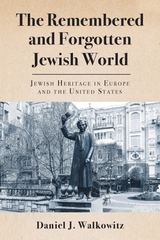
The Remembered and Forgotten Jewish World investigates the politics of heritage tourism and collective memory. In an account that is part travelogue, part social history, and part family saga, acclaimed historian Daniel J. Walkowitz visits key Jewish museums and heritage sites from Berlin to Belgrade, from Krakow to Kiev, and from Warsaw to New York, to discover which stories of the Jewish experience are told and which are silenced. As he travels to thirteen different locations, participates in tours, displays, and public programs, and gleans insight from local historians, he juxtaposes the historical record with the stories presented in heritage tourism. What he finds raises provocative questions about the heritage tourism industry and its role in determining how we perceive Jewish history and identity. This book offers a unique perspective on the importance of collective memory and the dangers of collective forgetting.
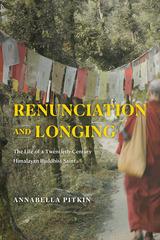
In the early twentieth century, Khunu Lama journeyed across Tibet and India, meeting Buddhist masters while sometimes living, so his students say, on cold porridge and water. Yet this elusive wandering renunciant became a revered teacher of the Fourteenth Dalai Lama. At Khunu Lama’s death in 1977, he was mourned by Himalayan nuns, Tibetan lamas, and American meditators alike. The many surviving stories about him reveal significant dimensions of Tibetan Buddhism, shedding new light on questions of religious affect and memory that reimagines cultural continuity beyond the binary of traditional and modern.
In Renunciation and Longing, Annabella Pitkin explores devotion, renunciation, and the teacher-student lineage relationship as resources for understanding Tibetan Buddhist approaches to modernity. By examining narrative accounts of the life of a remarkable twentieth-century Himalayan Buddhist and focusing on his remembered identity as a renunciant bodhisattva, Pitkin illuminates Tibetan and Himalayan practices of memory, affective connection, and mourning. Refuting long-standing caricatures of Tibetan Buddhist communities as unable to be modern because of their religious commitments, Pitkin shows instead how twentieth- and twenty-first-century Tibetan and Himalayan Buddhist narrators have used themes of renunciation, devotion, and lineage as touchstones for negotiating loss and vitalizing continuity.
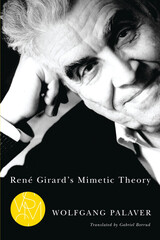
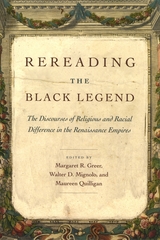
A distinguished group of contributors here examine early modern imperialisms including the Ottomans in Eastern Europe, the Portuguese in East India, and the cases of Mughal India and China, to historicize the charge of unique Spanish brutality in encounters with indigenous peoples during the Age of Exploration. The geographic reach and linguistic breadth of this ambitious collection will make it a valuable resource for any discussion of race, national identity, and religious belief in the European Renaissance.
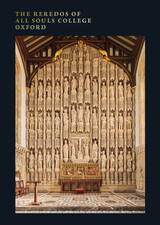
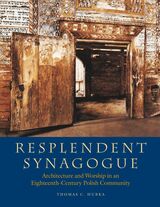
Thomas C. Hubka, an architectural historian, immersed himself in medieval and early modern Jewish history, religion, and culture to prepare for this remarkable study of the eighteenth-century Polish synagogue in the town of Gwozdziec, now in present-day Ukraine. Because the Gwozdziec Synagogue, like so many others, was destroyed by the Nazis, this book revives a spiritual community lost to history. Hubka selected the Gwozdziec Synagogue because of the completeness of its photographic and historical records. Graced with nearly two hundred historical photographs, architectural drawings, maps, diagrams, and color illustrations, Resplendent Synagogue vividly recreates the spiritual heart of a once-vibrant Jewish population. Hubka demonstrates that while the architectural exterior of the synagogue was largely the product of non-Jewish, regional influences, the interior design and elaborate wall-paintings signified a distinctly Jewish art form. The collaboration of Jewish and Gentile builders, craftsmen, and artists in the creation of this magnificent wooden structure attests to an eighteenth-century period of relative prosperity and communal well-being for the Jews of Gwozdziec. Part of a tradition that was later abandoned by Eastern European Jewish communities in the nineteenth and twentieth centuries, this truly resplendent synagogue exemplified a high point in Jewish architectural art and religious painting.
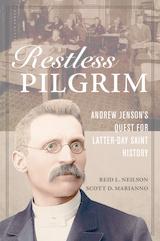
Engaging and informed, Restless Pilgrim is a groundbreaking study of an important figure in Latter-day Saint intellectual life during a transformative era in Church history.
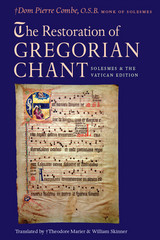

In our globalized world, differing conceptions of human nature and human values raise questions as to whether universal and partisan claims and perspectives can be reconciled, whether interreligious and intercultural conversations can help build human community, and whether a pluralistic ethos can transcend uncompromising notions as to what is true, good, and just.
In this volume, world-class scholars from religious studies, the humanities, and the social sciences explore what it means to be human through a multiplicity of lives in time and place as different as fourth-century BCE China and the world of an Alzheimer’s patient today. Refusing the binary, these essays go beyond description to theories of aging and acceptance, ethics in caregiving, and the role of ritual in healing the inevitable divide between the human and the ideal.

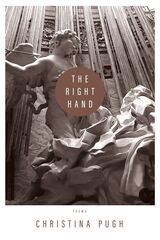
Pain, piercing, and language: with urgent lyricism and lacunae on the page, The Right Hand explores the physical, emotional, and philosophical experiences of chronic pain, bodywork (especially acupuncture), and healing. In the second half of the collection, the poet spends extended time with Bernini's sculpture of St. Teresa in Ecstasy in Rome, finding this famous scene of wounding to be in dialogue with her own experience of pain, as well as her suspension between languages and spiritual isolation. In The Right Hand, the hidden sites of the body speak, and Bernini’s centuries-old arrow pierces us with hurting eloquence.

The greatest classic of Sindhi literature presented here in an authoritative and vivid modern English translation.
Shah Abdul Latif’s Risalo is acknowledged across Pakistan and the wider diaspora as the greatest classic of Sindhi literature. In this collection of short Sufi verses, originally composed for musical performance, the poet creates a vast imaginative world of interlocking references to traditional Islamic themes of mystical and divine love and the scenery, society, and legends of the Sindh region.
Latif (1689–1752), a contemporary of the Panjabi poet Bullhe Shah, belonged to the class of Sufi saints whose shrines remain prominent features of the Sindhi landscape. The Risalo reflects Latif’s profound engagement with the fundamental literature of Islam as well as his openness to varied local traditions, including notable poems praising the spiritual devotion of local Hindu yogis.
This edition presents, alongside the original text in the Sindhi Naskh script, the first translation of the Risalo into modern English prose, offering a new readership access to the writings of one of the masters of Sufi poetry.

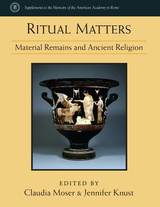
Material remains of religious practices may reveal striking local continuity, but they also highlight points of change, as distinct moments of manufacture and use transformed both sites and objects. Yet not every religious practice leaves a trace: the embodied use of imperial statuary, the rationale for the design of particular sacred books or the ephemeral “magical” implements designed by local religious experts leave few traces, if any, and are therefore less amenable to material investigation. What does remain, however, challenges any neat association between representation and reality or literary claim and practical application.
This volume represents a significant contribution to the material approach of studying the ancient Mediterranean’s diverse religious practices. In addition to volume editors Claudia Moser and Jennifer Knust, contributors include Henri Duday, Gunnel Ekroth, David Frankfurter, Richard Gordon, Valérie Huet, William Van Andringa, and Zsuzsanna Várhelyi. Topics covered include funerary remains, sacrificial practices, “magic,” Roman altars, imperial reliefs and statuary, and the role of sacred books.

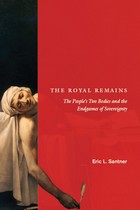
"The king is dead. Long live the king!" In early modern Europe, the king's body was literally sovereign—and the right to rule was immediately transferrable to the next monarch in line upon the king's death. In The Royal Remains, Eric L. Santner argues that the "carnal" dimension of the structures and dynamics of sovereignty hasn't disappeared from politics. Instead, it migrated to a new location—the life of the people—where something royal continues to linger in the way we obsessively track and measure the vicissitudes of our flesh.
Santner demonstrates the ways in which democratic societies have continued many of the rituals and practices associated with kingship in displaced, distorted, and usually, unrecognizable forms. He proposes that those strange mental activities Freud first lumped under the category of the unconscious—which often manifest themselves in peculiar physical ways—are really the uncanny second life of these "royal remains," now animated in the body politic of modern neurotic subjects. Pairing Freud with Kafka, Carl Schmitt with Hugo von Hofmannsthal,and Ernst Kantorowicz with Rainer Maria Rilke, Santner generates brilliant readings of multiple texts and traditions of thought en route to reconsidering the sovereign imaginary. Ultimately, The Royal Remains locates much of modernity—from biopolitical controversies to modernist literary experiments—in this transition from subjecthood to secular citizenship.
This major new work will make a bold and original contribution to discussions of politics, psychoanalysis, and modern art and literature.
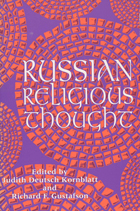
As Russia entered the modern age in the nineteenth century, many Russian intellectuals combined the study of European philosophy with a return to their own traditions, culminating in the novels of Tolstoy and Dostoevsky and in the religious philosophy of their younger contemporary, Vladimir Soloviev. This book explores central issues of modern Russian religious thought by focusing on the work of Soloviev and three religious philosophers who further developed his ideas in the early twentieth century: P. A. Florensky, Sergei Bulgakov, and S. L. Frank. The essays place these thinkers in the contexts of both Western philosophy and Eastern Orthodoxy, presenting a substantially new perspective on Russian religious thought.
The work of these four philosophers, this volume demonstrates, influenced virtually all aspects of twentieth-century Russian culture, and indeed, many aspects of Soviet culture as well, but also represents a rich philosophical tradition devoted to issues of divinity, community, and humanity that transcend national boundaries and historical eras.
Included in Russian Religious Thought is an introduction, brief biographical information on Soloviev, Florensky, Bulgakov, and Frank, and an Afterword by scholar James Scanlan, who elaborates on the volume’s aim to provide a thoughtful corrective, both to unexamined assumptions of past scholarship and to nationalist readings currently popular in post-Soviet Russia.
"Russian religious philosophy, banned under the Soviets, has been marginalized in the Western academy as well. This interdisciplinary volume helps explain why this body of thought has remained for so long at the center of Russian culture."—Caryl Emerson, Princeton University
READERS
Browse our collection.
PUBLISHERS
See BiblioVault's publisher services.
STUDENT SERVICES
Files for college accessibility offices.
UChicago Accessibility Resources
home | accessibility | search | about | contact us
BiblioVault ® 2001 - 2025
The University of Chicago Press




